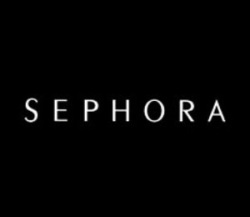 A California court of appeals backed up a previous decision to deny Class certification to the plaintiffs of the Sephora unpaid overtime class action lawsuit, which alleges Sephora USA Inc. made a practice of misclassifying their specialists as exempt from overtime pay and meal breaks.
A California court of appeals backed up a previous decision to deny Class certification to the plaintiffs of the Sephora unpaid overtime class action lawsuit, which alleges Sephora USA Inc. made a practice of misclassifying their specialists as exempt from overtime pay and meal breaks.
According to the court, because evidence demonstrated that each Sephora specialist handled their time differently, identifying a Class and then executing class-wide treatment would be difficult, if not impossible.
This decision by the appeals panel reaffirms the trial court’s conclusion regarding the proposed Sephora unpaid overtime Class certification, in that both the upper and lower courts agree that the plaintiff’s bid for Class certification is unsubstantiated, especially given conflicting evidence from both parties as to the extent any given Sephora specialist engages in overtime exempt and non-exempt work on a weekly basis.
Plaintiff Eva M. originally filed this Sephora unpaid overtime class action lawsuit in 2012. The former employee alleged that she and 98 other Sephora specialists working in Sephora’s California locations were misclassified as overtime exempt by the cosmetic retailer since February 2006. This overtime exempt misclassification allegedly resulted in these specialists being paid lower than what is required by California labor law.
In general, Sephora specialists are tasked with overseeing Sephora salespeople as well as maintaining a Sephora store’s appearance. However, according to the Sephora unpaid overtime class action lawsuit, the court of appeals concluded:
“The trial court reasonably credited the declarations of specialists from both sides, which, read together, suggest specialists’ exempt duties vary significantly from store to store and specialist to specialist, despite there being an understanding as to what tasks specialists are likely to perform and despite Sephora having companywide operational policies.”
The appeals court found that the lower court used proper legal criteria and rightfully ruled that Class certification of this unpaid overtime class action lawsuit was not appropriate.
The Sephora Unpaid Overtime Class Action Lawsuit is Case No. CGC-12-518619, in California’s Court of Appeal First Appellate District.
Fair Labor Standards and California Labor Laws on Unpaid Overtime
The Fair Labor Standards Act (or FLSA) is a federal law that ensures workers receive fair wages, are fully compensated for all hours worked, work in a safe environment, and are protects them from potential exploitation or abuse from employers.
The FLSA says: “Unless exempt, employees covered by the Act must receive overtime pay for hours worked over 40 in a workweek at a rate not less than time and one-half their regular rates of pay.”
California Labor Laws go a step further and mandate that an employee is paid double their hourly wage for hours worked beyond 12 hours in a work day or for hours worked in excess of eight on the seventh day of the work week.
Sephora is not the only business facing a wage and hour class action lawsuit for alleged California labor code violations. Many California wage and hour lawsuits filed in federal court over the last few years have stemmed from allegations that a company or business refused meal and rest breaks, unfair wages, or unpaid overtime violations.
Join a Free California Overtime, Wage & Hour Class Action Lawsuit Investigation
If you were forced to work off the clock or without overtime pay in California within the past 2 to 3 years, you have rights – and you don’t have to take on the company alone.
ATTORNEY ADVERTISING
Top Class Actions is a Proud Member of the American Bar Association
LEGAL INFORMATION IS NOT LEGAL ADVICE
Top Class Actions Legal Statement
©2008 – 2026 Top Class Actions® LLC
Various Trademarks held by their respective owners
This website is not intended for viewing or usage by European Union citizens.














